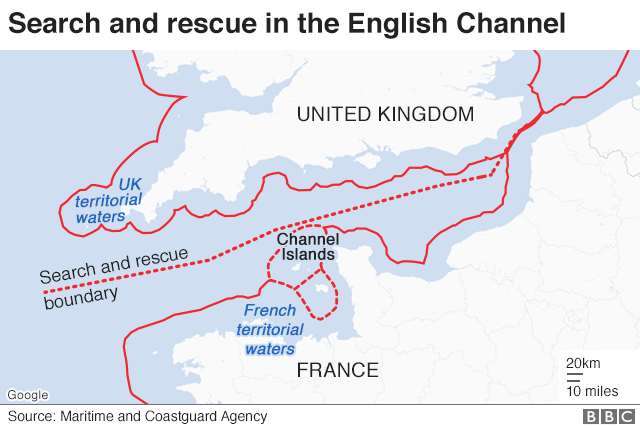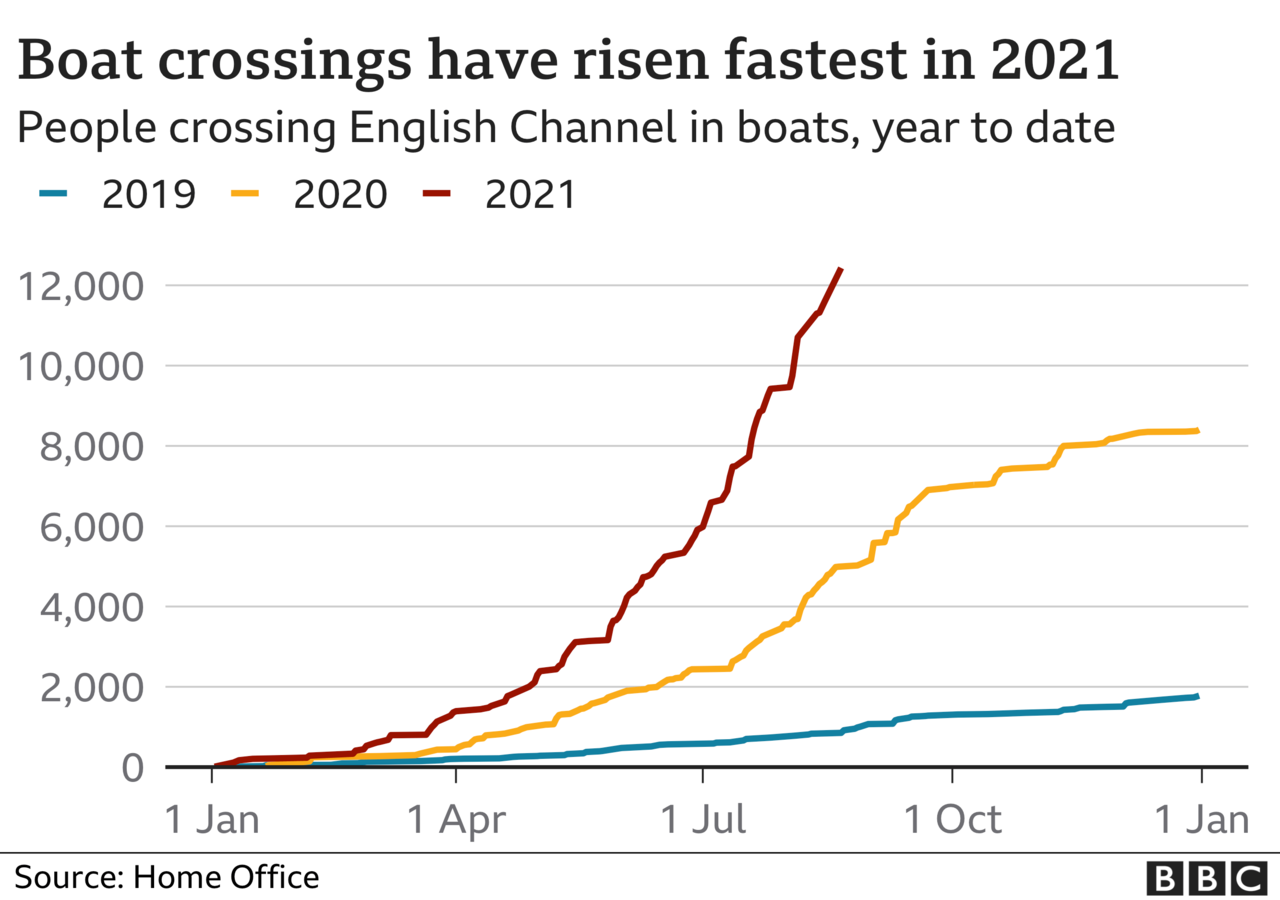Priti Patel has authorised Border Force to turn back boats carrying migrants at sea to prevent them reaching the UK.
More than 1,500 migrants have crossed the English Channel by boat this week.
The home secretary and her French counterpart discussed the issue on Wednesday but failed to agree new measures to prevent the crossings.
Her plan to force boats back into French waters is also likely to be opposed by French authorities who consider it to be dangerous.
Under international maritime law, people at risk of losing their lives at sea must be rescued.
The government has said it needs to use every possible tactic at its disposal to tackle people smuggling, while the Home Office said it continued to evaluate and test a range of safe and legal options to find ways of stopping small boats making the dangerous journey.
The Daily Telegraph reported that Ms Patel had secured legal advice for vessels to redirect small boats away from British waters.
Sources told the paper the tactics would only be used when it was deemed safe and in limited circumstances, with Border Force staff being trained.
In a tweet Ms Patel said she had held constructive talks with French Interior Minister Gérald Darmanin, adding: "I made clear that delivering results and stopping crossings were an absolute priority for the British people."
But in a letter to the home secretary ahead of their meeting Mr Darmanin said that the French position on interception at sea was unchanged.
"Safeguarding human lives at sea takes priority over considerations of nationality, status and migratory policy, out of strict respect for the international maritime law governing search and rescue at sea," he wrote.
He said that employing turn-around tactics "would risk having a negative impact on our co-operation".
Mr Darmanin also said that while there had been an increase in the number of people making the crossing this was down to people smugglers using larger boats and other tactics such as decoy boats.
What happens to migrants in the English Channel?

* If migrants are found in UK national waters, it is likely they will be brought to a British port
* If they are in international waters, the UK will work with French authorities to decide where to take them
* Each country has search-and-rescue zones
* An EU law called Dublin III allows asylum seekers to be transferred back to the first member state they were proven to have entered but the UK is no longer part of this arrangement and has not agreed a new scheme to replace it
* The £54.2m deal doubles the number of police patrolling France's beaches, funds improved intelligence sharing and introduces better technology to target the gangs who organise the crossings
* It follows a £28.2m deal last November that failed to limit crossings
In the letter he said that France would be doubling the number of patrols on the Channel coast, in line with an agreement between the two countries earlier this year.
It was the second pledge of its kind in a year, in a bid to stop small boats from leaving France.
As part of the deal, the government pledged to give France £54m to support its efforts - money which Ms Patel has threatened to withhold, due to the number of crossings taking place.
But Calais MP Pierre-Henri Dumont has said "nothing" can stop the small boat crossings, pointing to the size of France's coastline.
"The fact is, we've got 300 to 400 kilometres of shore to monitor every day and every night and it's quite impossible to have police officers every 100 metres because of the length of the shore," he said.
Ms Patel will host the final day of the G7 interior ministers meeting on Thursday, with illegal migration anticipated to be the focus.

More than 12,600 migrants have made the journey across the English Channel so far this year.
According to the Home Office, the UK authorities had to rescue or intercept 456 people as part of 17 incidents on Tuesday, and 301 people as part of nine incidents on Wednesday, while the French reported a total of 18 events over the two days preventing a total of 628 people from reaching the UK.
The UK's clandestine channel threat commander Dan O'Mahoney said efforts so far this year had prevented more than 10,000 migrant attempts, led to almost 300 arrests and secured 65 convictions.
Charities urged the Home Office to take a "more humane and responsible approach" towards asylum seekers.
Amnesty International UK has said people have the right to seek asylum in the UK and "only make dangerous journeys and rely on smugglers because there are no safe alternatives made available to them".















